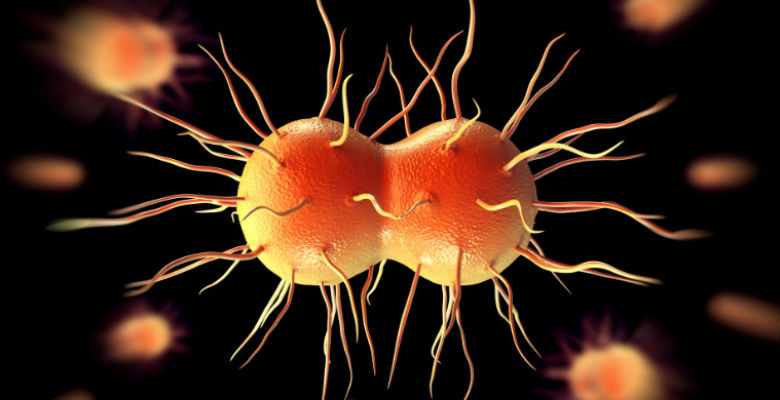What Is Gonorrhea? Discuss Its Symptoms And Causes

Gonorrhea refers to an infection caused by a bacterium that is transmitted sexually and infects both females and males. It affects the area of the throat, rectum, and urethra most often. Gonorrhea can also affect the area of the cervix in females.
It spread commonly during anal, vaginal, or oral sex. During childbirth, babies who have infected mothers can get this disease. Gonorrhea commonly affects the eyes of babies.
The best way to make yourself protected from getting diseases is by using a condom during sex. Being in a relationship that is mutually monogamous also helps you to avoid the transmitted infections.
Symptoms Of Gonorrhea
Infections of gonorrhea do not cause symptoms in many cases. Symptoms of gonorrhea can infect different sites in your body. Commonly, these symptoms appear in the area of your genital tract.
Gonorrhea Infecting Your Genital Tract
Signs and symptoms of the infections of gonorrhea in men are:
- Painful urination
- Pain or swelling in the area of one testicle
- Pus-like discharge from the penis tip
Signs and symptoms of gonorrhea infection in women are:
- Painful urination
- Increased vaginal discharge
- Vaginal bleeding between the menstrual periods
- Pelvic or abdominal pain
Gonorrhea At Your Body’s Other Sites
Gonorrhea can also affect the following parts of your body.
Rectum
Signs and symptoms of gonorrhea in the rectum include pus-like discharge from the area of the rectum, red blood spots on the toilet tissue itching, and having to strain during the movements of the bowel.
Eyes
Gonorrhea infection that affects your eyes leads to sensitivity to light, eye pain, and pus-like discharge from the eyes.
Throat
Throat infection symptoms include a swollen lymph node present in the neck and a sore throat.
Joints
If bacteria infect one or more joints, the affected joints become swollen, red, warm, and extremely painful during the movements.
When Should You Visit A Doctor
If you are experiencing any troubling symptoms then make an appointment with the doctor. The troubling symptoms include a burning sensation during the urination or pus-like discharge from the area of the rectum, vagina, or penis.
Visit the doctor also if your partner has been tested positive for gonorrhea. You may not experience the specific symptoms that alert you to go for a medical checkup. Without treatment, you can reinfect your partner if he or she has recovered from gonorrhea successfully.
Causes Of Gonorrhea Infection
Bacterium Neisseria gonorrhoeae cause the infection of gonorrhea in people. These bacteria usually pass from one to another person during sexual intercourse including vaginal, anal, or oral intercourse.
Risk Factors
Gay men and women who have age more than 25 years are at higher risk of developing gonorrhea infection. Other factors that play a greater role in increasing the risk include:
- Having more than one partner for sex
- Having a new partner for sexual intercourse
- If you had another sexually transmitted disease or gonorrhea
- Having a sex partner who also has multiple sex partners
Complications
If you leave gonorrhea untreated then it can cause serious complications that are given below.
Infertility In Women
Infection of gonorrhea can spread in the fallopian tubes and uterus causing the disease known as pelvic inflammatory disease (PID). This disease leads to rubes scarring, infertility, and a high risk of complications during the pregnancy.
You need immediate treatment if you are diagnosed with PID. Early treatment helps you to develop serious complications.
Infertility In Men
Gonorrhea causes a coiled and small tube in the testicle’s rear portion. Sperm ducts of men are located here. In this way, gonorrhea causes inflammation in this area. If you leave it untreated then it can cause infertility in males.
Infections That Spread To Human Body
Gonorrhea causes infections that can spread in your joints and other areas of the body. Bacteria spread through your bloodstream that is involved in causing gonorrhea. It causes joint pain, fever, skin sores, swelling, stiffness, and rash.
Increased Risk Of AIDS/HIV
Having gonorrhea puts you at the risk of developing the human immunodeficiency virus (HIV). This virus leads to AIDS in humans. People who have both HIV and gonorrhea can quickly pass these diseases to their partners as compared to others.
Complications In Babies
Babies who contract the infection of gonorrhea from their mothers during delivery can develop sores, blindness, scalp, and other infections. It is important to be tested for sexually transmitted diseases if you feel you are having symptoms of these diseases at any stage of your life.

From the first moment we started our work, we have now in our record of achievements thousands of cases of dental implants, successful smile design and other biological, functional and cosmetic treatments in Qatar and many cases coming to us from the Arab Gulf countries. We are proud of this trust placed by thousands of patients in us, we promise you to continue what we started and achieve our mission.
https://en.alkharashy.com/